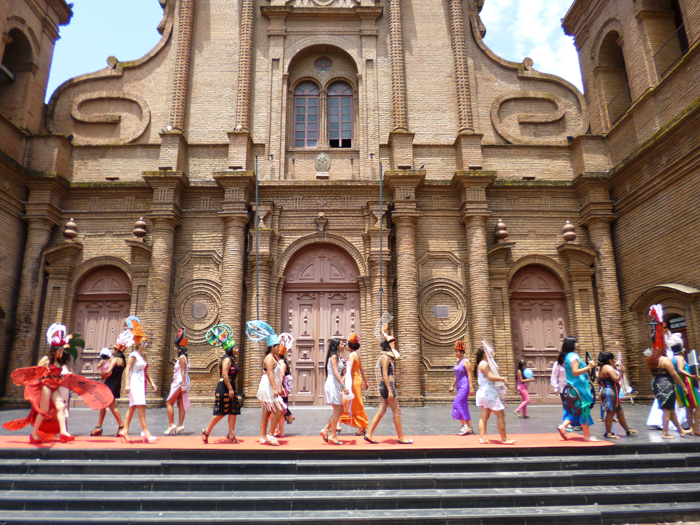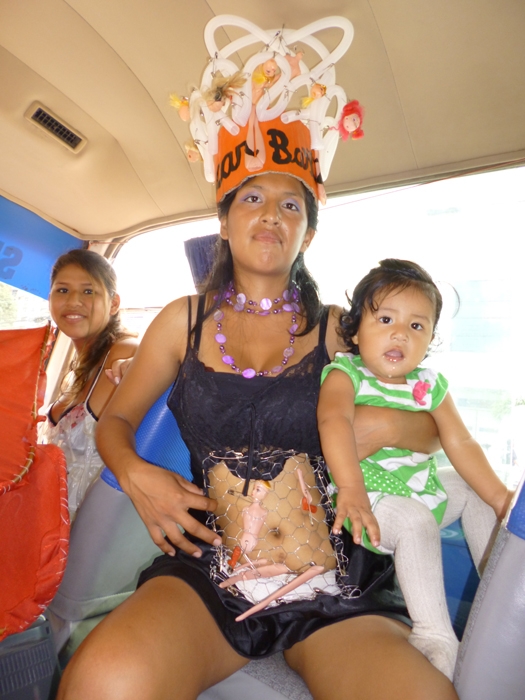‘I am a whore, I am a lesbian, I am Bolivian. I can only exist by constructing prohibited alliances between these discursive and political positions that are supposed to contradict each other. I speak up from the site of torture and of violence, but not to give testimony; rather to imagine happiness from a position of disobedience.’ This, roughly, is how María Galindo would introduce herself. Over the past 15 years, Galindo has created a radical artistic practice: an artist, performer, activist, writer and cofounder of the Bolivian collective Mujeres Creando, she brings the subaltern practices and knowledge of indigenous women into dialogue with the political and literary traditions of anarchism, punk and nonwhite feminism. But what can art do in the face of an authoritarian neocolonialism in which the logics of feminism and indigenous identity politics have been absorbed within humanist, religious and neoliberal discourse as new strategies of control? Galindo answers by dislocating art from the spaces of the market and the gallery and bringing it right back to the place where it was born: the public square, the social ritual. Mujeres Creando’s public actions such as Pasarela Feminista (Feminist Catwalk), staged in the city of Santa Cruz, Bolivia, in 2014, sought to confront the white and heterosexual idealised feminine body, an image perpetuated by mainstream media, via a 13-hour ‘rebellion’ by women in the city’s streets during which they gave speeches while walking a makeshift catwalk in outfits that they felt both reclaimed and represented their own bodies and experiences as indigenous women.

Against the racial and sexual purification of the body, Galindo’s work exorcises the terror of colonial history by means of a bastard and iconoclastic theatricalisation of Catholic and patriarchal symbols. Against the capitalist economy of exploitation and ecological destruction, Galindo’s artistic animism uses ‘cheap and broken’ objects and bodies, investing them with new life as totems of a poetic revolution to come that aims to challenge our conventional modes of perception and our desiring economies. Her more-than-art practice belongs to a lineage of art-shamans in which we might also locate the works of Pedro Lemebel and las Yegüas del Apocalipsis, Ocaña, Miguel Benlloch, Sergio Zevallos, Beau Dick, Lygia Clark, Michel Journiac, Ulrike Ottinger, Annie Sprinkle and Beth Stephens, Vala Tanz and Guillermo Gómez-Peña.
María Galindo is a Bolivian anarcha-feminist based in La Paz. In 1992 she cofounded the collective and social movement Mujeres Creando (Women Creating) to challenge issues of sexism, structural discrimination against the LGBT community and Western hegemonies, while engaging in antipoverty work through propaganda, street performances and civil resistance.
Paul B. Preciado is a writer, curator and philosopher on the study of gender and sexual politics based between Paris, Barcelona and Athens. He is a writer-in-residence at the LUMA Foundation in Arles. Preciado’s most recently published book is Pornotopia (2014).
From the January and February issue of ArtReview, in association with K11 Art Foundation
